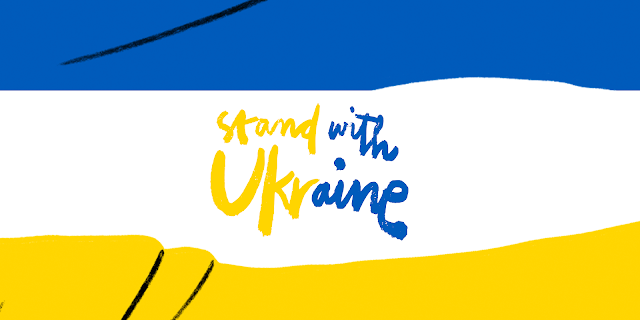Reporting and Supporting: Women in war and peace
From the front line
Our lives are punctuated by daily reports from news correspondents
risking their lives to show the barbarity of war. The words and images come now from Ukraine, reminiscent
of the 1940s and countless other wars, the nightmares of Bosnia, Sudan, Syria
and Afghanistan. They are horrible, visceral and powerful. At times we can’t
bear to look.
Many of the correspondents are women. Lise Doucet, Lindsey Hilsum, Orla Guerin, Alex Crawford and others, following the footsteps of Lee Miller, Martha Gellhorn, Kate Adie and Marie Colvin. Some, like Marie Colvin, died, others have been injured and traumatised. They report back faithfully and they speak with compassion and coherence. Never too emotional, they cut through to the brutality and senselessness of conflict. They are crucial witnesses, unflinching in their reports, urgent, but calm and focused. Doing their job and earning our admiration.
Resilience and defiance
Today’s haunting images show lines and lines of women and
children. They wear their winter boots, woolly hats and bright puffer coats. They are pushing grandparents,
carrying family pets, pulling suitcases, not knowing their final destination, but
determinedly moving onwards.
How can they bear it? How would we feel if it was happening
to us?
There are poignant moments. We remember the baby being
passed through the wire fence in Afghanistan. In Ukraine, an elegantly dressed
elderly woman stands defiantly in front of the ruins of her apartment block. Children
with special needs are huddled into a basement shelter, cared for by the women
who will stay with them, whatever the outcome.
In Russia itself, Marina Osnyannikova runs into the TV news studio with a handwritten placard saying ‘Don’t believe the propaganda. They are lying to you’. Another young woman is arrested for holding up a blank sheet of paper. Brave women who didn’t expect their lives to be like this.
How can we help? What can we do?
The world is witnessing mass displacement of people. Those
of us living in relative peace are having agonised discussions about the human
suffering. Money is donated, provisions are driven to the borders, charities
are on high alert and accommodation is offered. Some of the tiniest
compassionate actions can reduce us to tears or even smiles, like the bowls of
food and water put out for all the pets coming into Berlin station with their
desperate owners. Or the Syrian refugee overcome with astonishment when his
hosts set fire to the Christmas pudding.
Our Fawcett group in Milton Keynes, like thousands of other groups
and organisations, has been talking about all this and thinking about effective
ways of supporting. Several members of the group have welcomed Syrians and
Afghans to MK and are well aware of the complexities and difficulties facing
refugees. Chaotic and bureaucratic government schemes have often been frustrating and baffling.
We hope that ways in which we can help will become clearer.
We can share our plans and ideas, and we must take advice from those who have
the skills, knowledge and experience. We can lobby politicians to develop
strategies and put viable plans together. We can challenge slow and inhumane
practices.
We don’t need gestures and self-aggrandising speeches. It’s
not about being competitive or world-beating. It’s about compassion, common
humanity and doing whatever we can to help, for this is a huge watershed moment.
MK Council gears up for 'Homes for Ukraine' scheme
Welcome MK - Giving refugees and migrants a brighter hope for tomorrow


